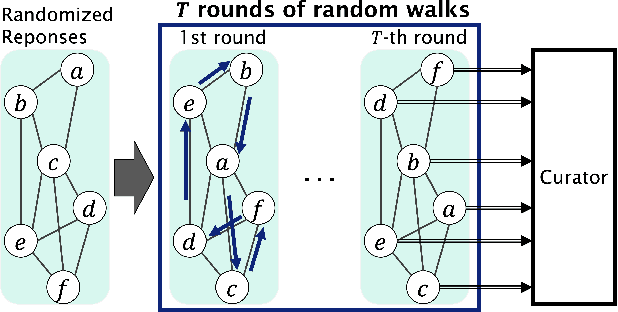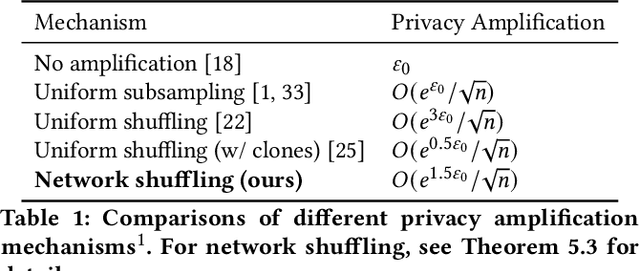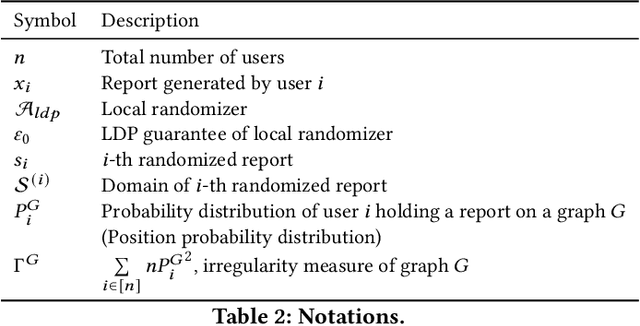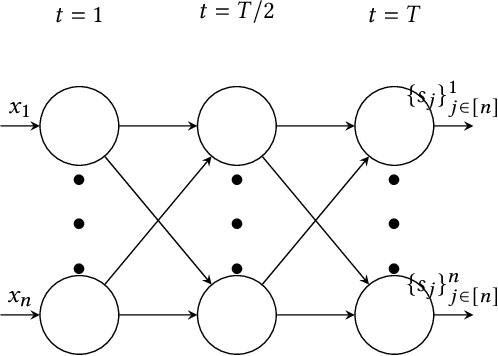Fumiyuki Kato
HRNet: Differentially Private Hierarchical and Multi-Resolution Network for Human Mobility Data Synthesization
May 13, 2024



Abstract:Human mobility data offers valuable insights for many applications such as urban planning and pandemic response, but its use also raises privacy concerns. In this paper, we introduce the Hierarchical and Multi-Resolution Network (HRNet), a novel deep generative model specifically designed to synthesize realistic human mobility data while guaranteeing differential privacy. We first identify the key difficulties inherent in learning human mobility data under differential privacy. In response to these challenges, HRNet integrates three components: a hierarchical location encoding mechanism, multi-task learning across multiple resolutions, and private pre-training. These elements collectively enhance the model's ability under the constraints of differential privacy. Through extensive comparative experiments utilizing a real-world dataset, HRNet demonstrates a marked improvement over existing methods in balancing the utility-privacy trade-off.
ULDP-FL: Federated Learning with Across Silo User-Level Differential Privacy
Aug 23, 2023



Abstract:Differentially Private Federated Learning (DP-FL) has garnered attention as a collaborative machine learning approach that ensures formal privacy. Most DP-FL approaches ensure DP at the record-level within each silo for cross-silo FL. However, a single user's data may extend across multiple silos, and the desired user-level DP guarantee for such a setting remains unknown. In this study, we present ULDP-FL, a novel FL framework designed to guarantee user-level DP in cross-silo FL where a single user's data may belong to multiple silos. Our proposed algorithm directly ensures user-level DP through per-user weighted clipping, departing from group-privacy approaches. We provide a theoretical analysis of the algorithm's privacy and utility. Additionally, we enhance the algorithm's utility and showcase its private implementation using cryptographic building blocks. Empirical experiments on real-world datasets show substantial improvements in our methods in privacy-utility trade-offs under user-level DP compared to baseline methods. To the best of our knowledge, our work is the first FL framework that effectively provides user-level DP in the general cross-silo FL setting.
Network Shuffling: Privacy Amplification via Random Walks
Apr 08, 2022



Abstract:Recently, it is shown that shuffling can amplify the central differential privacy guarantees of data randomized with local differential privacy. Within this setup, a centralized, trusted shuffler is responsible for shuffling by keeping the identities of data anonymous, which subsequently leads to stronger privacy guarantees for systems. However, introducing a centralized entity to the originally local privacy model loses some appeals of not having any centralized entity as in local differential privacy. Moreover, implementing a shuffler in a reliable way is not trivial due to known security issues and/or requirements of advanced hardware or secure computation technology. Motivated by these practical considerations, we rethink the shuffle model to relax the assumption of requiring a centralized, trusted shuffler. We introduce network shuffling, a decentralized mechanism where users exchange data in a random-walk fashion on a network/graph, as an alternative of achieving privacy amplification via anonymity. We analyze the threat model under such a setting, and propose distributed protocols of network shuffling that is straightforward to implement in practice. Furthermore, we show that the privacy amplification rate is similar to other privacy amplification techniques such as uniform shuffling. To our best knowledge, among the recently studied intermediate trust models that leverage privacy amplification techniques, our work is the first that is not relying on any centralized entity to achieve privacy amplification.
OLIVE: Oblivious and Differentially Private Federated Learning on Trusted Execution Environment
Feb 16, 2022Abstract:Differentially private federated learning (DP-FL) has received increasing attention to mitigate the privacy risk in federated learning. Although different schemes for DP-FL have been proposed, there is still a utility gap. Employing central Differential Privacy in FL (CDP-FL) can provide a good balance between the privacy and model utility, but requires a trusted server. Using Local Differential Privacy for FL (LDP-FL) does not require a trusted server, but suffers from lousy privacy-utility trade-off. Recently proposed shuffle DP based FL has the potential to bridge the gap between CDP-FL and LDP-FL without a trusted server; however, there is still a utility gap when the number of model parameters is large. In this work, we propose OLIVE, a system that combines the merits from CDP-FL and LDP-FL by leveraging Trusted Execution Environment (TEE). Our main technical contributions are the analysis and countermeasures against the vulnerability of TEE in OLIVE. Firstly, we theoretically analyze the memory access pattern leakage of OLIVE and find that there is a risk for sparsified gradients, which is common in FL. Secondly, we design an inference attack to understand how the memory access pattern could be linked to the training data. Thirdly, we propose oblivious yet efficient algorithms to prevent the memory access pattern leakage in OLIVE. Our experiments on real-world data demonstrate that OLIVE is efficient even when training a model with hundreds of thousands of parameters and effective against side-channel attacks on TEE.
 Add to Chrome
Add to Chrome Add to Firefox
Add to Firefox Add to Edge
Add to Edge